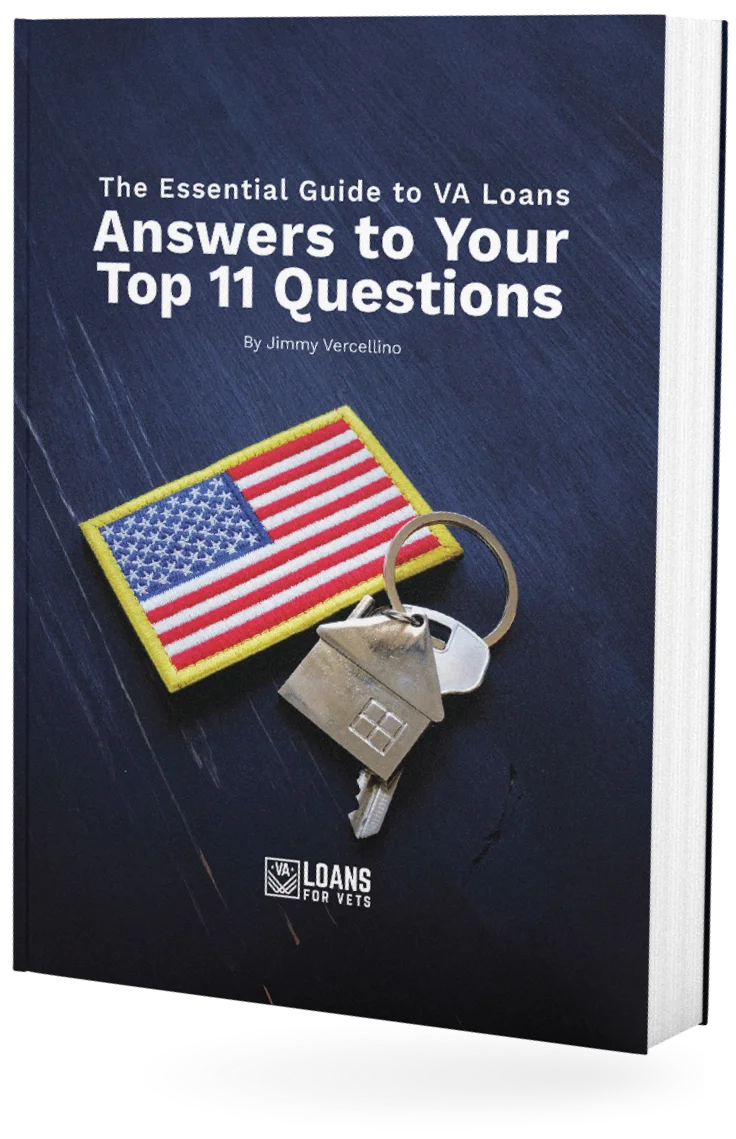Are you a veteran or active duty service member ready to buy a house? Then you’ve likely given some serious thought to getting a VA loan. But you might be wondering who is eligible to be on the title of a VA loan and whether or not adding them works to your advantage.
In this article, we’ll cover the advantages/disadvantages of multiple people on a VA loan, who can be co-borrowers on a VA loan, and how to get started.
Pros and Cons of Multiple People on a VA Loan
Pros
Additional people on the title can be beneficial if your co-borrower has a high credit score and a good debt-to-income ratio. Adding people to the title may mean that you’ll qualify for a larger loan and/or receive a better interest rate. That means you could secure a nicer home with lower monthly payments.
Cons
However, the opposite is also true. If your potential co-borrowers have poor credit or large outstanding debts, adding them to the title may hurt your chances of getting approved. Even if you are approved, you might qualify for a smaller amount or pay a higher rate.
It’s always a good idea to consult a VA lender about the potential benefits or disadvantages of adding people to your VA loan. They will be able to review your particular situation and offer a recommendation.
Co-Borrowers on a VA Loan
In order to qualify for a VA loan, the co-borrowers on the title must meet certain requirements. Also, VA loans are typically only approved for up to four co-borrowers at a time. Groups eligible to be co-borrowers include:
- One VA-eligible borrower and their non-VA eligible spouse
- Married veterans in which only one spouse uses their entitlement
- Married veterans in which both use a portion of their entitlement
- Non-married veterans in which both use a portion of their entitlement
As you can see, co-borrower situations include at least one eligible veteran, and more often than not involve the veteran’s spouse. In these instances, the entirety of the loan is considered a VA loan and is open to the typical VA home loan benefits.
Non-Veteran Non-Spouse Co-Borrowers
Under certain circumstances, it is possible to add a non-veteran non-spouse to the title of your VA loan, as the Department of Veterans Affairs doesn’t explicitly prohibit the practice. This can be beneficial for securing a larger loan if you live with a family member or domestic partner.
These types of loans can be difficult to obtain from a VA lender but are not impossible.
With these kinds of loans, only the veteran’s portion of the loan is considered a VA loan with all of the benefits that entails. The other portion of the loan, that of the non-veteran non-spouse, is treated as a traditional mortgage. This means the co-borrower will likely need to provide a down payment and provide proof of income that would cover their portion of the loan. Because of these additional requirements, it’s worth considering if this is the best option for your situation.
Non-Occupant Co-Borrowers
You might also wonder if a non-occupant of the home can be a co-borrower on the loan. This would be a scenario in which a family member or other party who will not live in the home helps you secure a loan. In most cases, this is not possible for a VA loan, as the borrowers must use the home as a primary residence. If you are interested in such an arrangement, other loan options might be better suited to your situation.
VA Home Loans for Vets
Adding a spouse or other veteran or military member to a VA loan can be relatively straightforward. Including non-spouse and non-veteran co-borrowers, however, can make the loan process a little tricky. At VA Loans for Vets, we are dedicated to getting veterans the home of their dreams. We can help you navigate the best possible options for you and your family.
If you are an active duty service member, veteran, or surviving spouse who is interested in buying a home, you may qualify for a VA mortgage.
If you are looking to purchase a home but are not sure if you qualify, check your eligibility today or contact the VA Loans for Vets team at (602) 908-5849 to begin the process.



